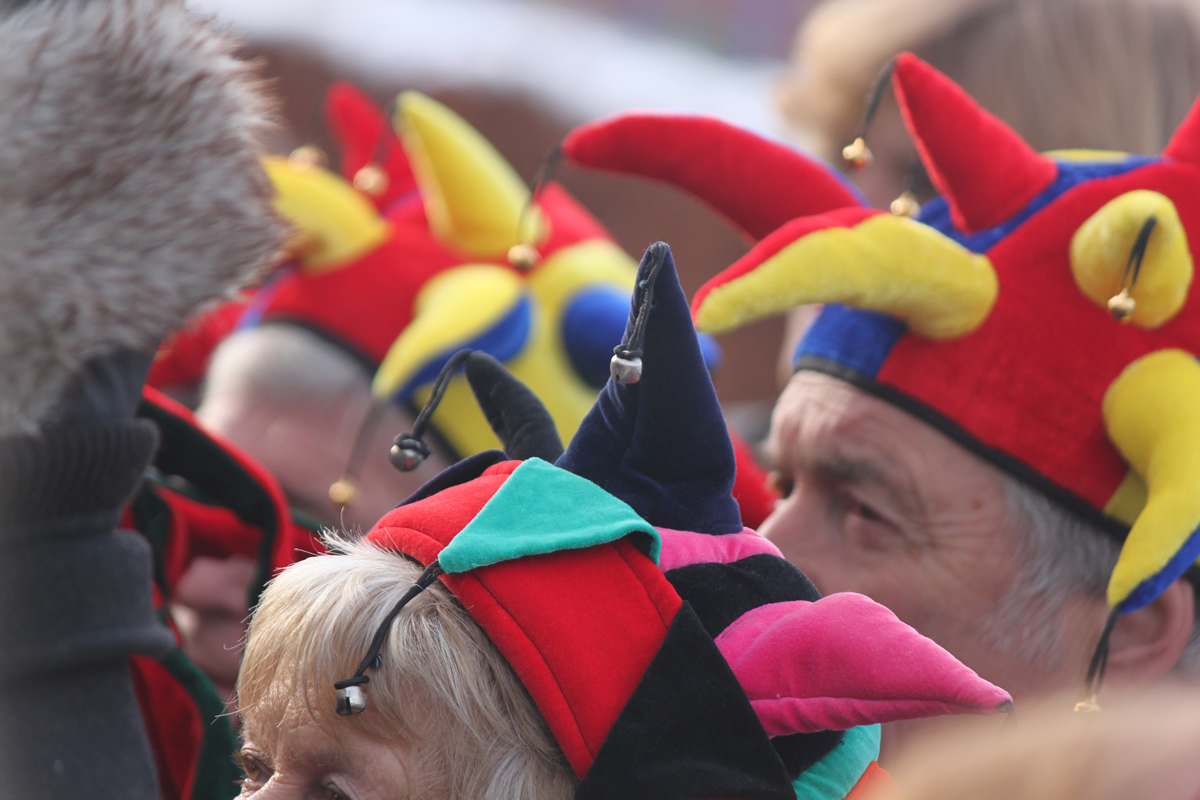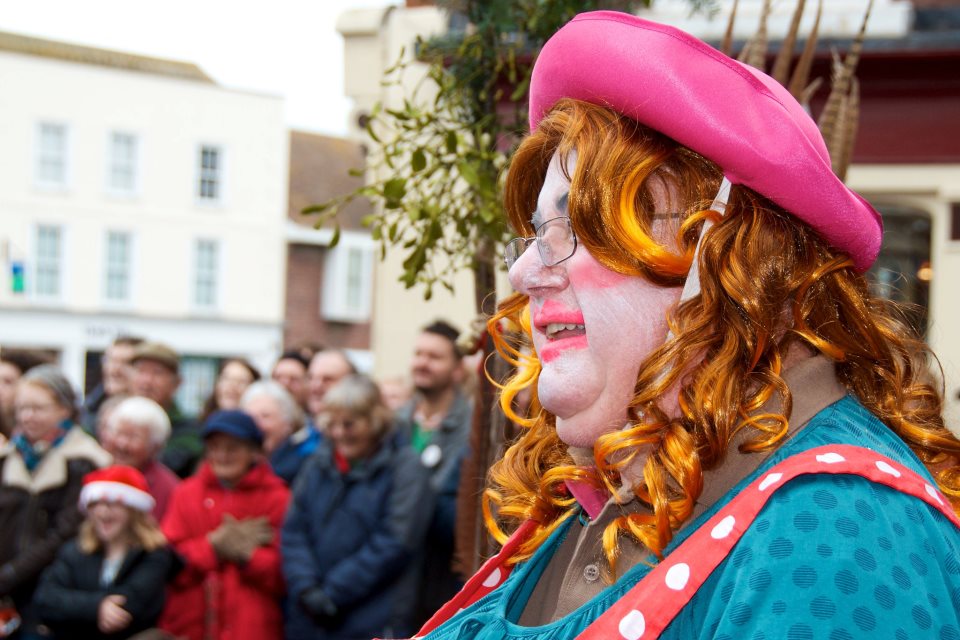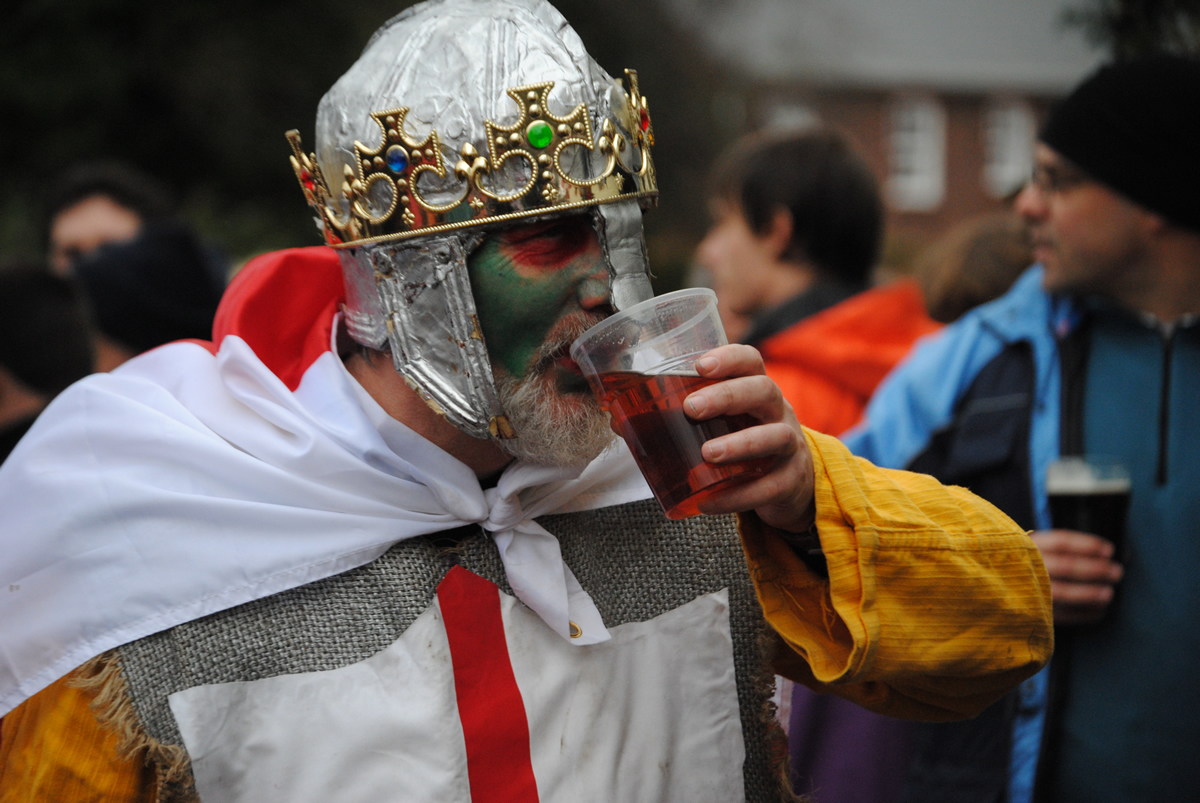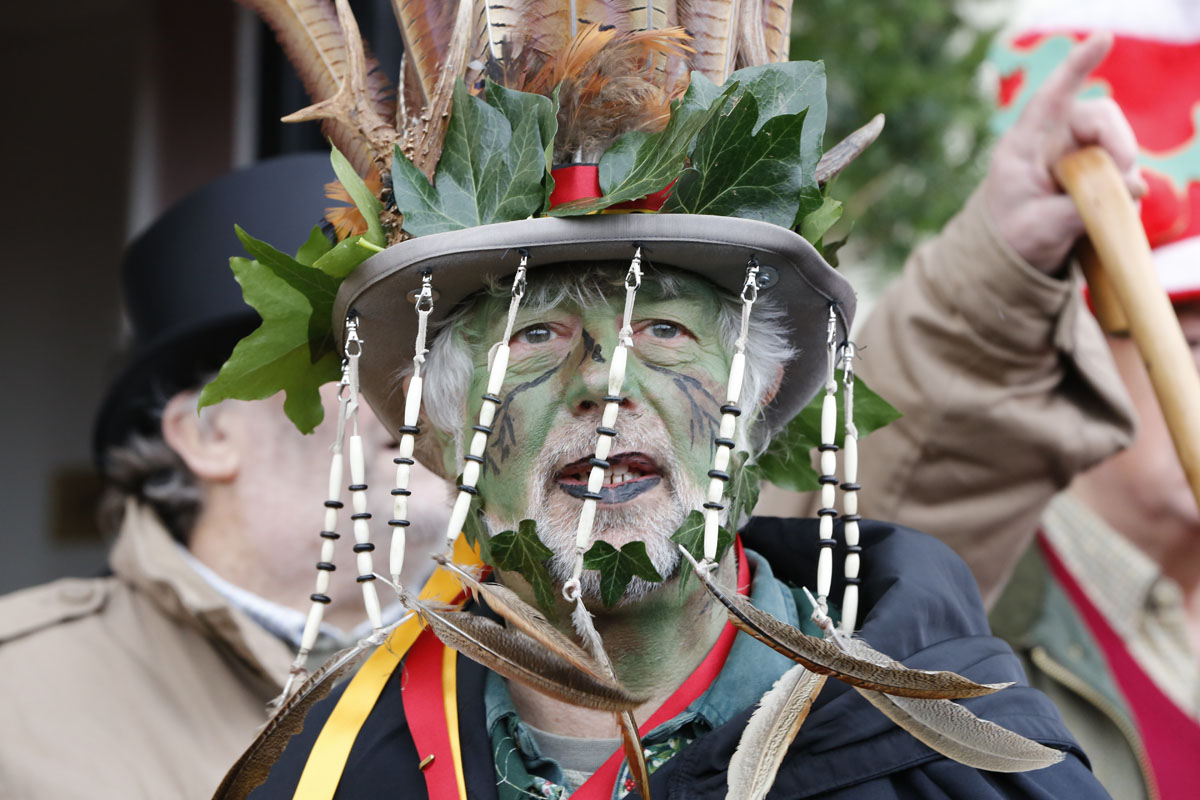...
Mummers Plays, or Mumming (Momyng), are traditional, ritualistic performances with links to activities over 500 years old. They are traditionally associated with the Christmas period (Midwinter Solstice). In other parts of the country they are performed at Easter (Pace Egging) and at All Souls Day near Samhain (Soulers).
In the 20th C. mummers’ plays were thought to be survivors of our pagan, pre-Christian origins. This was largely due to the interpretation by the social anthropologist, Sir James Frazer. It is a view not supported by modern academic research. Travelling players in the Middle Ages performed “Miracle” or Mystery” plays illustrating scenes from the bible such as the Fall of Lucifer, the Creation and Fall of Man, Cain and Abel, Noah and the Flood, etc. but this was not mumming as we understand it.
The word 'Mummer' is derived from the old English word mum (meaning silent, i.e., miming) or the Old French word mom meaning masked or disguised. There is a similar word in German, for example a “mummerspiel” is a masked play. The French word “Momchaunce” (or “Mumchance”) and German word “Mumenschantz” refer to a dice game, once associated with medieval mumming (momyng). In their present form the plays probably date from the mid 18thC although nothing was often written down (as with most folk traditions). They were common in 18/19thC with numerous villages hosting a version of the standard format.
The play performed every year by the Wantage Mummers is the mid-Berkshire version of the play collected by Lt-Col. Barzillai Lowsley from Hampstead Norreys in Victorian times. A play of this type (hero-combat) was performed in many of the villages around Wantage at Christmas time (Ardington, Lockinge, Hendred, Stanford, Uffington, Steventon, Brightwalton, Chaddleworth, Aston Tirrold, etc.). Whilst strictly adhering to the “script” collected by Lowsley, the Wantage play has become famous for the ad lib action/sight gags, Greek chorus contributions and Auld Veyther Beelzebub’s Rhyme “to please you all”. The Icknield Way Morris Men currently sponsor the Wantage Mummers.
The Script
Ronald Hutton (The Stations of the Sun: History of the Ritual Year in Britain) refers to a chapbook published mid 18thC, containing the full text intended for groups seeking to perform a play around Christmas time. Four lines from this play appeared in a version performed in Exeter in 1738, but the “silence” prior to this speaks volumes, since other folk customs (e.g. Morris dancing) fully populate the folk custom records for a considerable number of years prior to this. Therefore, the absence of a recorded referral to this type of play before 1738 almost certainly confirms its non-existence. Interestingly, we have now been made aware of an important document, courtesy of Michael Heaney, which pins Dr Skwyres words to a 1740 ballad (The Infallible Doctor Broadsword), contemporaneous with the believed commencement of the current play (ca. 1738); it has also been confirmed that the printer was at that address in 1710, thereby validating the publication date.
The absence of formal script meant much ad libbing and working in of topical events. Furthermore, maintaining anonymity of the players seemed to be a key feature and the costumes frequently covered the performers faces or they wore blacking. This may have been to preserve the mystique of the performance or to give the players more freedom of expression. Whatever the origins, villagers thought it bad luck if they could identify a performer.
The Play
The play, introduced by Molly, involves a fight scene in which first King Alfred is ‘killed’ by Beau Slasher. After being brought back to life by The Noble Dr Good, the two fight again. This time it is the turn of Beau Slasher to die. He too is brought back to life by Jack Vinney who celebrate with a dance. Happy Jack then appears proclaiming his poverty and family to support and begging for money. Traditionally, agricultural workers doing the Mumming play could make two weeks wages from 2 days performance of the play! Wantage Mummers have donated more than £40,000 to a wide range of local and national charities. The play rounds off with a monologue from Old Father Beelzebub, who comments on the issues of the day, and ends with the Mummers Dance.
The Wantage Mummers Song
God bless the master of this house
I hopes he is within
An if he is, praay tell us zo
An we will zoon begin
Chorus:
With hey dum dum, with hey dum dum
With hey dum dum dee derry
Vor we be come this Christmas time
A purpose to be merry
I hopes the mistress is within
A zettin by the vire
A pityin we poor mummers yer
Out in the mud and mire
Chorus:
We dwoant come yer but once a year
An hopes tis no offence
An if it is praay tell us zo
An we will zoon go hence
Chorus
The Characters
Although the characters and plots vary across the country there are more similarities than differences in the many plays collected and it is almost certain that there was a common origin. Because participants were largely illiterate the verbal transmission of the plays from generation to generation ((and sometimes kept within families) led to many differences in words and characters evolving; e.g. in Headington the Turkish Knight is known as The Turkey Snite.
For The Wantage Mummers, the principal characters are as follows:
- King Alfred
- Beau Slasher
- Molly
- The Noble Dr Good, now called Dr. Squires (Skwyres)
- Jack Vinney
- Happy Jack
- Old Father Beelzebub
- Good Old Father Christmas











